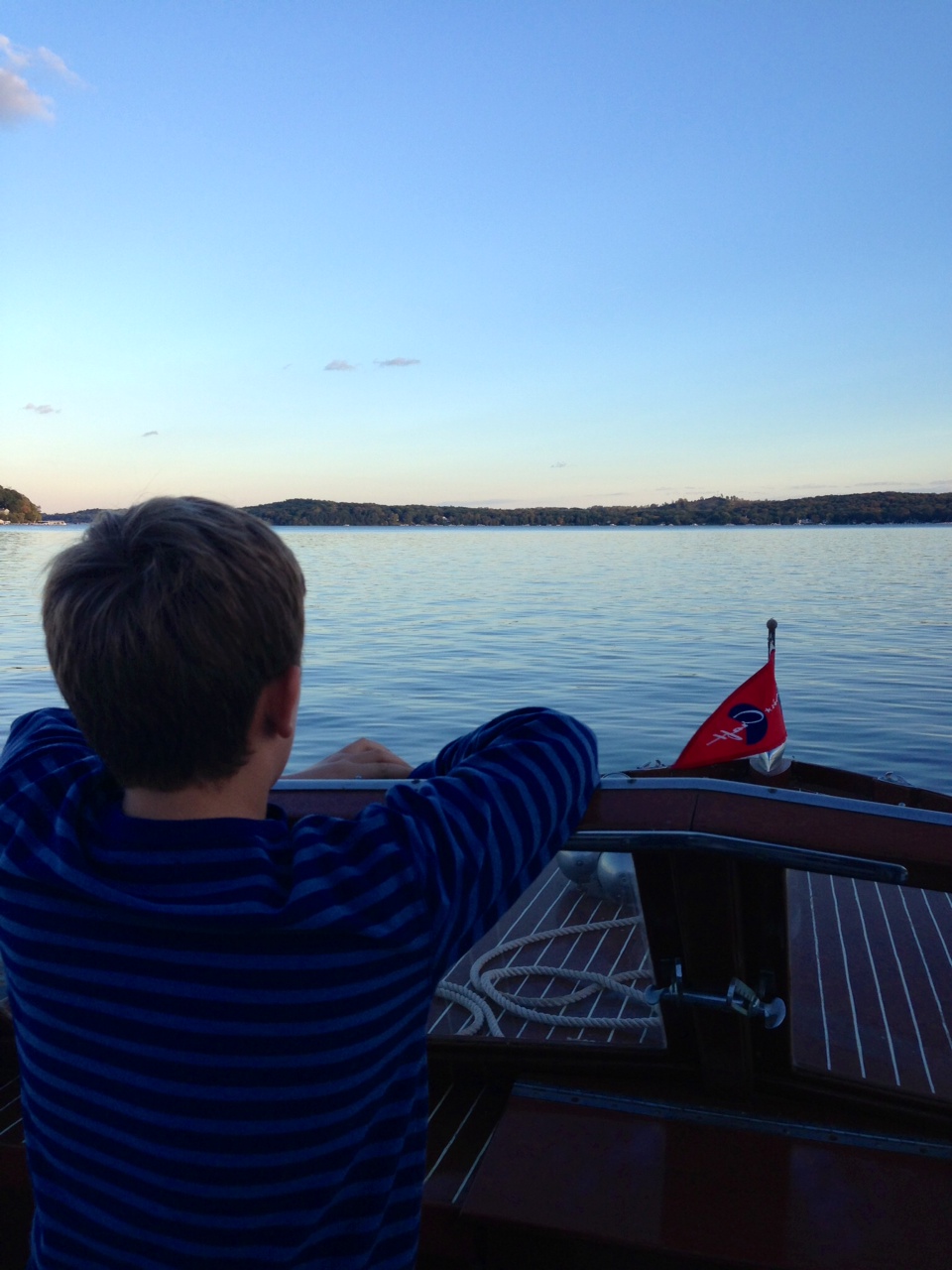In person, one can scrutinize every curve and polished detail of any sort of boat. Under this close surveillance, it would be easy to see a thin scratch and examine it as though it were, indeed, a very difficult situation. That same scratch on that same boat, when magnificently under power on a flawless summer day, is undetectable to even a most trained eye. In fact, even the same eye that saw and wondered about that scratch while it rested in its slip during some boat show or another would be completely and entirely unable to see the scratch from that distance, and under that power.

The boat that I keep on a trailer in my back yard for at least half of the year is, as of this writing, on a trailer in my back yard. It isn’t that I wish it to be there, but I have taken varying approaches to making sure this boat is ready for open water. For instance, I have washed the boat. I have tightened the various and seemingly random wire connections that plague the interior of the console, making sure each is tight and secure and ready for a season of jiggle. I have removed the engine cover many, many times, and looked at the engine. I have even moved certain pieces with my hands, shaking them and examining them up close, in the way that someone would touch and examine something they knew very much about. After this careful examination, I return the cover to the engine, satisfied that I have learned nothing and adjusted nothing.
For each town, for each season, there are common sights. Williams Bay has been told to me as being a village that long ago allowed leaf burning in the fall, even when other towns decided against it. And so I have a friend who tells me that whenever he drives in the fall and smells burnt and burning leaves through his open car window, he thinks of his childhood spent, at least in some part, in Williams Bay. I feel this way when I hear happy boats motoring under slow speeds under the cover of a Lake Geneva night. I hear the revelry, muted and vague, and I think of nights spent in my childhood bedroom where I would tussle with the fear of sleeping with my window open and the suffocating heat of an upstairs bedroom that lacked air conditioning. In the midst of those sweaty nights, I would find peace in the sounds from those slowly cruising boats, and some day I wished to spend a night not in that bed, but on those boats, joyous and proud, and cool.
In the fall, there is a visual agreement with any small town in any rural area of these 57 states. The agreement stipulates that any driver, progressing in any direction for any period of time, will come upon either one of two things: They will find a grain wagon, overflowing with beans or corn, being towed to the local granary. Or, as the second option finds us, they will be stuck behind a tractor, a Combine or otherwise, a John Deere, or a Case, or a Cat, or maybe even a Kubota, and they will remain stuck behind that tractor as it slowly plods along the margins of that road, making its way to or from a field where it will either have just harvested, or will be about to harvest, that corn or those beans. This is the agreement, and there is little that can be done to fight it.
In the spring, too, there is a common sight, but only if your city or village has any meaningful water near by. In the section of Manitoba where my wife grew up, this scene would not play out. Not in the spring, the summer, or the fall, and most certainly not the winter, when engines are too busy being plugged into wall outlets to consider towing a trailer. But in the rest of the developed world, wherever water is present, there is a springtime procession of trucks and trailers, SUVs and trailers, even cars and trailers. These vehicles tow boats of every make and every model, from winter hiding spaces in barns and under tarps, from conditioned spaces with humidifiers and from backyard wood patches where a boat can be stored without interrupting the serenity of a winter view. The processional has now begun, and in Lake Geneva where there are several lakes, sure, but only one lake that means anything, this visual sequence plays out every hour on the hour, from weeks ago until the final boat is made ready for another season of floating.
Just yesterday, I drove down Highway 50, as I do every day, most days more than once. I was following a Chris Craft Sportsman, the sort that my father has owned for years, that I am, at the age of nearly 37, still not allowed to drive. The boat was polished to a different shade of mahogany than most of these 24′ boats, and while the color wasn’t what my eye expected, the boat, aloft on that trailer, being pulled behind a truck that has been towing those boats daily for the last month and will do so daily for the coming month, well, that fit my eye as well as anything ever has.

